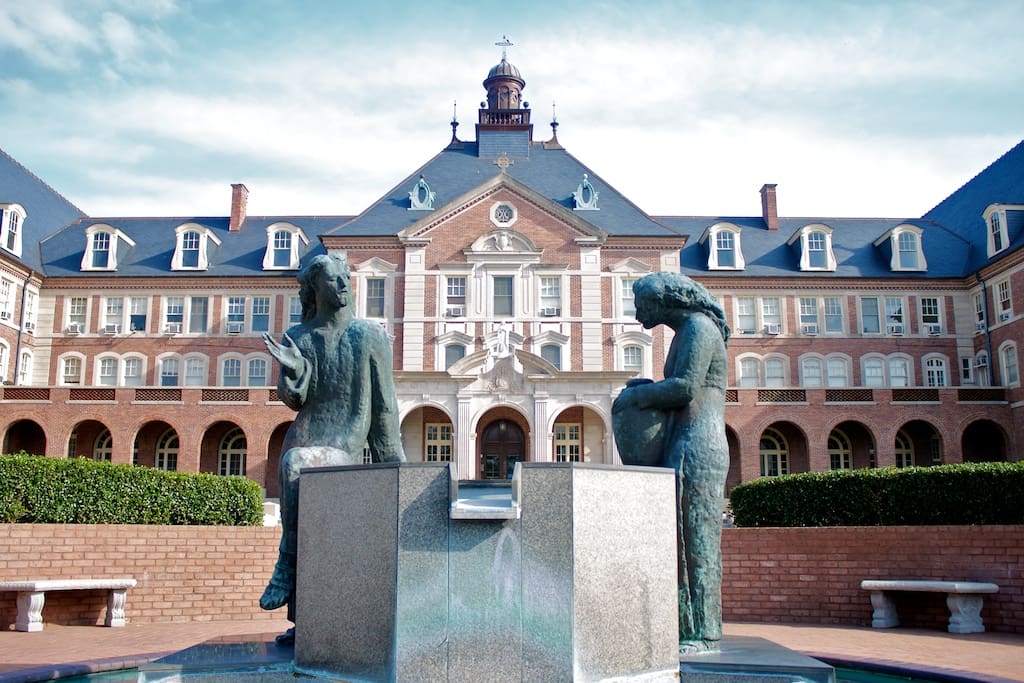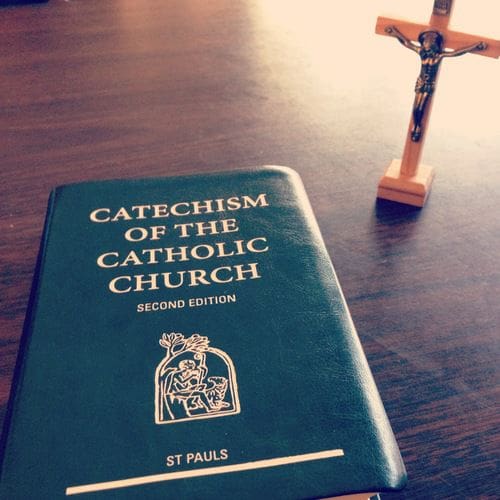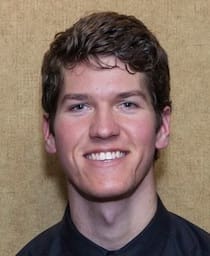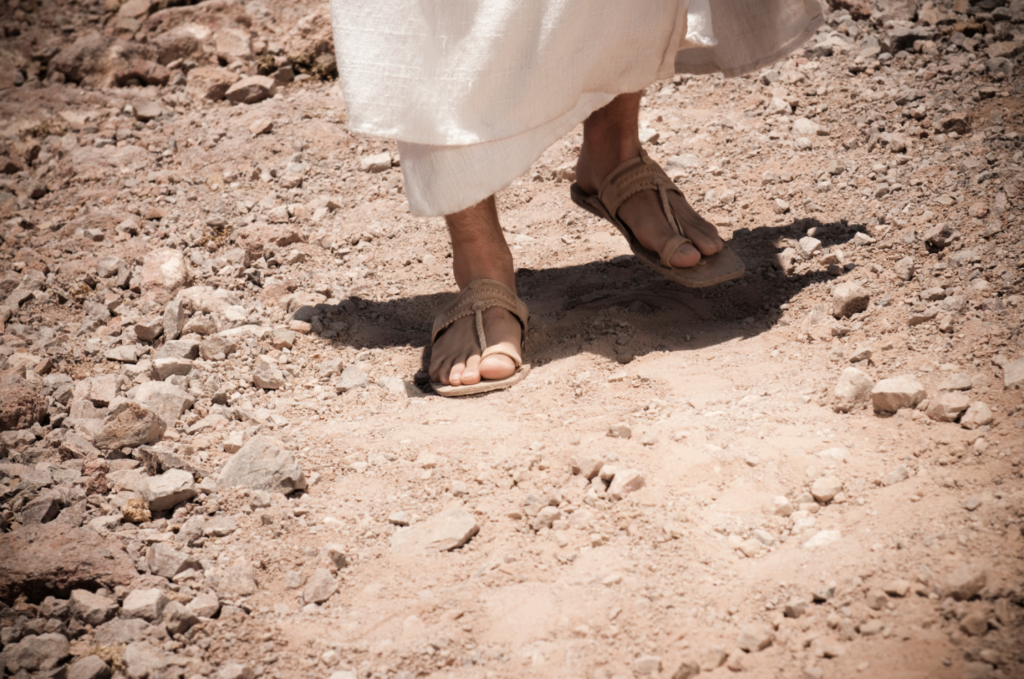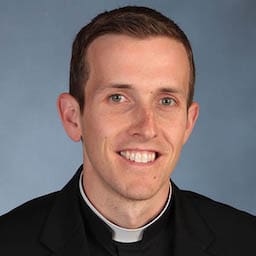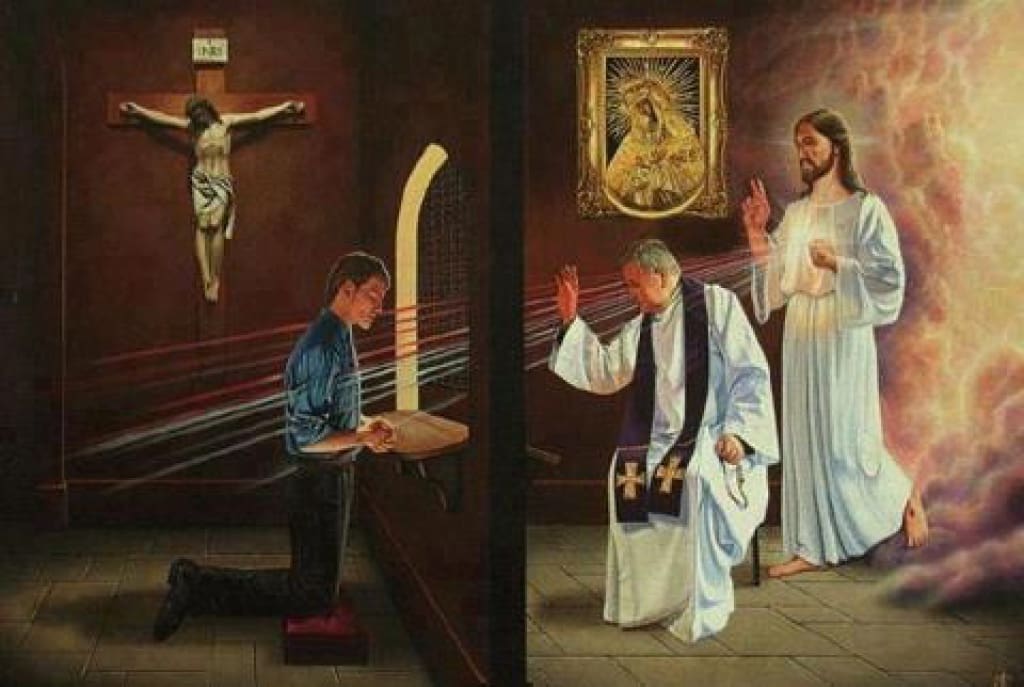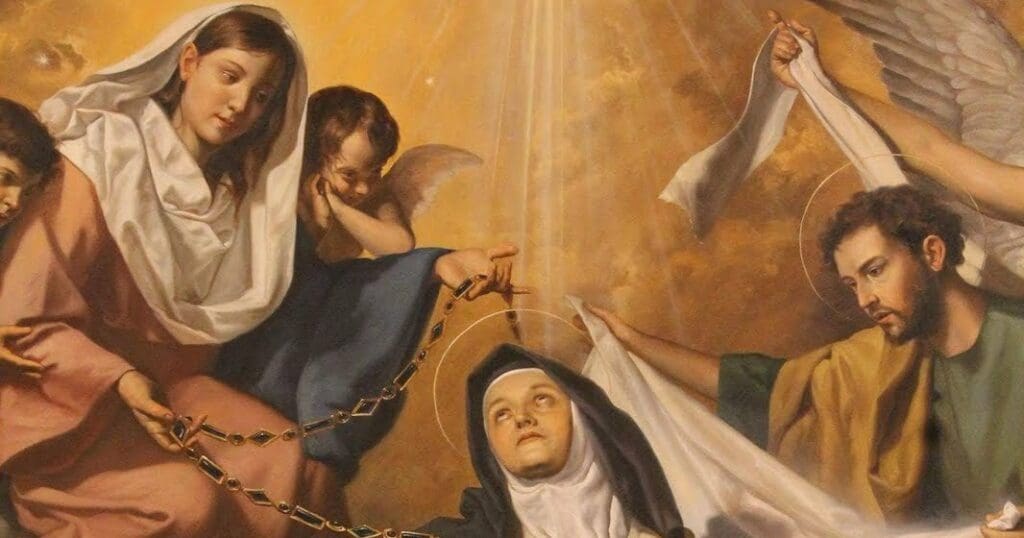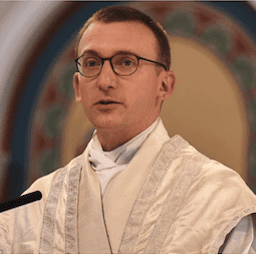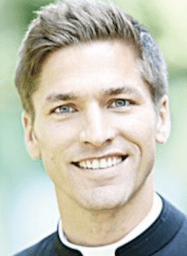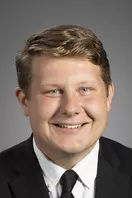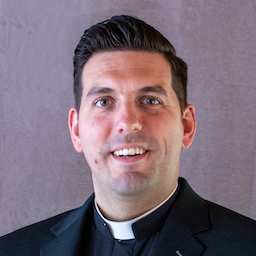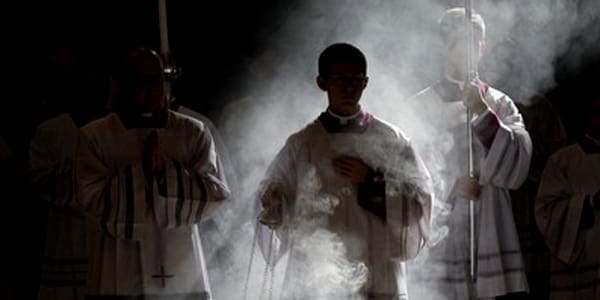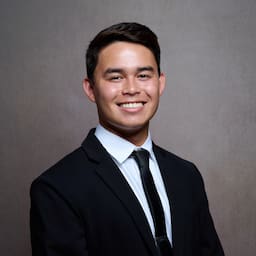A few weeks ago at the seminary, I spent time with my brother seminarians in our common room. Out of the blue, one of my friends asked me, “Why do you want to be a priest?” Without any thought, I answered, “Because, I was made for this.” Having spent five years in seminary and plenty of time discerning before that, I have wasted no time pondering the nature of “vocation” and what it means to me. Never in all this deep thought and self-examination do I believe I had come closer to the nature of my call to the priesthood than in these words spoken naturally to a brother. Indeed, I believe I was made for this.
A vocation is a mystery, but it is not a gnostic secret left for men and women to decode. Hours spent in prayer looking for a secret message, at least for me, would not lead to a “lightning bolt” moment where God says definitively, “do this.” Instead, I have learned that a vocation is revealed in the knowledge of self, which comes when one is exposed to the presence of God. To live one’s vocation is to respond to the Word of God. It is a discovery of the concrete ramifications of that Word spoken to each of us when he called us out of dust and formed us in our mother’s womb. Augustine says “love and do what you will,” and this is good advice for those who genuinely love God. I believe I am called to be a priest, because as I have grown in love for God, my love remains small. I have become increasingly convinced that nothing would make me happier than to be his priest and to unite my heart with his heart in the ministry of His Word. To bear Christ in my heart to the world, in the priestly ministry, seems the perfect joy I can imagine on this side of heaven.
Of course, there is a broad picture of vocation and its concrete manifestation in an individual’s life. For me, it was present from an early time but has grown up and flowered into something more beautiful than human hands could arrange. Before I was baptized, I encountered the priesthood on the first day of my life. I was born on Ash Wednesday, and utterly new to the world, I was greeted by my mother, father, the doctors and nurses, and then a priest, who, when I was not yet a day old, sprinkled ashes on my head and spoke to me the words, “Remember you are dust and to dust you shall return.” That day, though I was personally unaware, I was given a reminder of my identity. I encountered the Word of God and was assured I would return to him. From then on, I was “dusted” on a mission.
Throughout my childhood, I always had an awareness of the reality of God that seems natural to children. Life was joyful and mysterious in all the best ways. I had the wonderful experience of growing up in the arms of the Church. I attended Catholic School and learned daily about the God who called me to love. I marveled at the mystery of the sacraments and sacramentals of the Church. As a child at home, I would try to make holy water and give blessings. I remember learning about the Eucharist and wondering what happened when someone received the Body and Blood of Christ. I remember going to Mass on Sunday and asking my parents to open their mouths so that I could see what happened when someone received the host. I wanted to see – how that which appeared to be bread – could be God and make someone live forever, as I was told. Of course, they did not comply. What happens when someone eats the Body of Christ, I would not find out until my first communion. Dressed in a suit and tie and carrying as a standard a felt banner that read “Jesus is Love,” my classmates and I marched on the church, and I, at the wise age of eight years, would encounter the person of Jesus Christ tangibly and finally know myself and what it means to receive him. Though I was not yet eight and unable to plumb the depths of the mysteries of the blessed sacrament, I knew that I had received the living God and would never be the same. My communions became less frequent, however, as my family, disillusioned by scandal, and caught up in other life concerns, began to fall away from the practice of the faith.
The monthly school Mass was the only one I attended in middle school. Over time, I was exposed to new ideas and friends who rejected the church as old-fashioned and illogical. No reasonable and kind person would believe the claims of the Catholic Church, they told me. Feeling challenged in my belief, and no longer nourished by the regular reception of the sacraments, I began to doubt. I was approaching Confirmation and wanted to know if I should receive the sacrament. I decided I could not embrace what I did not understand or practice, but neither could I reject it, so I resolved to give it the “old college try” as I approached my Confirmation. I signed up to be an altar server as this would force me to go to Mass on Sundays, and as my parents didn’t go, I found rides to get there. I also began a study of what the church teaches. I spent time reading the catechism, and a lot of time on the Catholic Answers website. I became convinced that if God is who He says He is, then Catholicism must be true. I decided to be confirmed and experienced in a new way, the presence of God – the power of the Holy Spirit. I encountered the God of the living, a personal God with overwhelming love.
From then on, I practiced the faith fervently and with the grace of one recently convicted, although still clumsily and imperfectly. All this unfolded through my time in high school in a way that made seminary seem like the natural next step. I had great priest mentors at my parish and school, and they knew they had something I wanted, and in their ministry, they gave me something I wanted to convey. At home, however, I was experiencing a lot of difficulties.
My family life had deteriorated due to addiction, and I was embarrassed by my family. I became accustomed to taking care of myself and keeping up appearances. I entered the seminary when I graduated high school, and I did so seeking to grow closer to the Lord, but with a divided heart, also desiring to be apart from the family of whom I was ashamed. As I advanced through seminary, I gradually began to rely more and more on myself rather than on God. I failed to recognize the wounds I not only had received, but was still receiving as things deteriorated at home. All this came to a head as I came to my fourth year of college seminary. My family had just lost their home, another consequence of addiction, and I could not form authentic relationships due to my inability to open up. At that point, it was clear to everyone except me that I was miserable. Relying on myself, I could not keep up the image of the good seminarian of which I was so proud. I was a mess. God, in his mercy, saw me in my miserable state and saved me from my self-reliance and the misery which is its natural consequence. That year, I would leave seminary as I lost my father to an addiction I tried hard to ignore. I then found myself with my family in shambles and my support systems taken away. I had no job, plan, or specific place to live.
Initially, I tried to accept these things patiently. I had good spiritual directors, and knew intellectually that God was good and that all was under his care. I, in my anger, allowed myself to begin to doubt. I felt betrayed by God, the one to whom I believed I had given everything. I felt betrayed by those with whom I had placed my trust. Most of all, I thought I was being denied something I deserved. I believed that I had done everything I was supposed to do outwardly, or at least assured myself that I was not as bad as those around me, so I was being denied my due. In all of this, I was beginning to see myself again as I was – not a pious or virtuous man to whom God owed a favor; instead, I was still that dust to whom God first spoke. I had come to say, “I deserve,” rather than, “thank you.” Bit by bit, as everything on which the false self relied, was stripped away, the rebuilding began. I could step back and see how I was sustained by a God who took no delight in my pain, but embraced me in my suffering, an embrace that led to a new freedom.
On my last day of college seminary, I sat in the choir stall filled with sorrow and anger, not knowing what my future would be or if I would ever become a priest, but then came the words of the Gospel that day from John 15:
“I am the true vine, and my Father is the vine grower. He takes away every branch in me that does not bear fruit, and everyone that does he prunes so that it bears more fruit. You are already pruned because of the Word that I spoke to you. Remain in me, as I remain in you. Just as a branch cannot bear fruit on its own unless it remains on the vine, so neither can you unless you remain in me. I am the vine, you are the branches. Whoever remains in me and I in him will bear much fruit because, without me, you can do nothing.”
Even then, I knew these words were for me (though I did not want to hear them). I knew I was not being cast off, but receiving again the mercy I did not deserve as He invited me to deeper communion with him.
While away from seminary, I often remembered the Word spoken to me while wandering and rebelling. God is a Father who never forgets His promises, and He asked me to remember who He was and what He has done for me. As time passed, God restored my soul. I would learn again how to rely on his help and friendship rather than my power. I was then able to approach the idea of seminary formation.
Eventually, as my life took a different course than I planned, I found myself staring into the monstrance and overcome with the knowledge that I, not God, had been unfaithful. Despite my unfaithfulness, I could see how He guided me along the way, how He kept an account of my wanderings and recorded my tears in his book, and how with a strong arm, He led me from a place of sorrow to a land of joy holding me by the right hand.
Upon returning to seminary, I was filled with trepidation, but surprisingly, I found everything new. The life I once found arduous was now sweet. What I once dreaded was not life-giving. I now experience a deeper communion with my brother seminarians and fellow Christians. I have experienced a renewed friendship with the person of Jesus Christ, my one true hope and the noblest object of my affection. Apart from him, I can do nothing. Now, with a new heart, I can confidently say, “I was made for this.”

